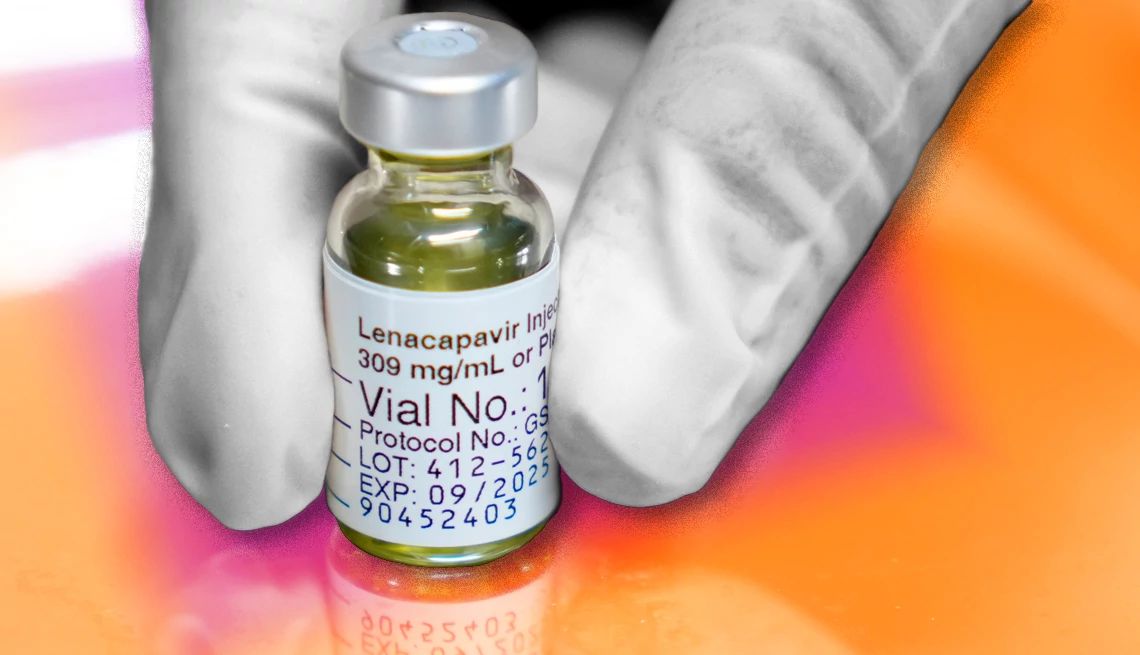AARP Hearing Center


There’s a new tool to help prevent HIV in people who are at risk of contracting the virus, and health experts say it has the potential to change the trajectory of the global epidemic and may be especially beneficial for some older adults.
In June, the U.S. Food and Drug Administration (FDA) approved the twice-yearly injection lenacapavir, marketed as Yeztugo, for use as pre-exposure prophylaxis (PrEP), a preventive treatment that helps stop HIV infection before it starts. Other forms of PrEP that are available include daily pills, like Truvada, or a shot that’s given every other month, known as Apretude.
In clinical trials, however, lenacapavir — which has been FDA-approved since 2022 to treat certain types of HIV infections — was found to be more effective at HIV prevention than a daily PrEP pill. Results from a phase 3 study, published in the New England Journal of Medicine, showed that nearly all (99.9 percent) of participants taking lenacapavir were protected against HIV.
“So it’s very, very effective,” says Joseph J. Eron, M.D., the Herman and Louise Smith Distinguished Professor of Medicine at UNC School of Medicine and director of the Clinical Core at the UNC Center for AIDS Research.
It’s also more convenient than other available options. Patients don’t need to make frequent trips to the clinic for the medication, and “it doesn’t require people to remember to take a pill,” which, if missed often, can affect how well it works, says Matthew Hamill, M.D., an HIV expert and an associate professor of medicine at Johns Hopkins Medicine.
Researchers leading the clinical trial found that adherence to lenacapavir was higher than that of the daily oral pill. “I think people underestimate how hard it is to take their medicine every day, especially if you’re not having symptoms,” Eron says.
Public health experts say a twice-yearly injection could support broader HIV prevention efforts, especially in areas of the U.S. and the world where access to routine medication and medical appointments is limited.
“It’s just better to have more options that more people can use,” says Katherine Promer, M.D., an infectious disease physician who specializes in caring for individuals with HIV at UC San Diego Health.


































































More From AARP
What Do You Know About Women’s Sexual Health?
Read our In the Mood columns, then test your knowledge
Progress Continues on HIV Vaccine
Where things stand in the quest to prevent the spread of the virusWhat Older Adults Need to Know About STIs
Senior centers can be hotbeds of sexual activity. Here's what to know about STIs